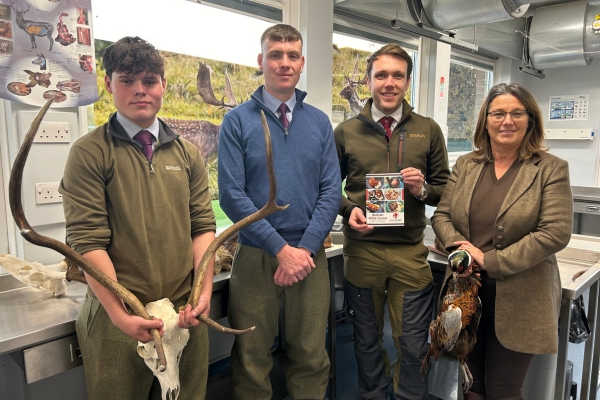
Scottish secondary school students get stuck in to game
BASC Scotland director Peter Clark recently joined Tayside and Grampian Moorland Group coordinator Deirdre Falconer to showcase game to local school pupils.
Get information on the legal shooting season for mammals and birds in the UK.
Apply for funding for your project or make a donation today
Comprehensive information and advice from our specialist firearms team.
Everything you need to know about shotgun, rifle and airgun ammunition.
Find our up-to-date information, advice and links to government resources.
Everything you need to know on firearms law and licensing.
All the latest news and advice on general licences and how they affect you.
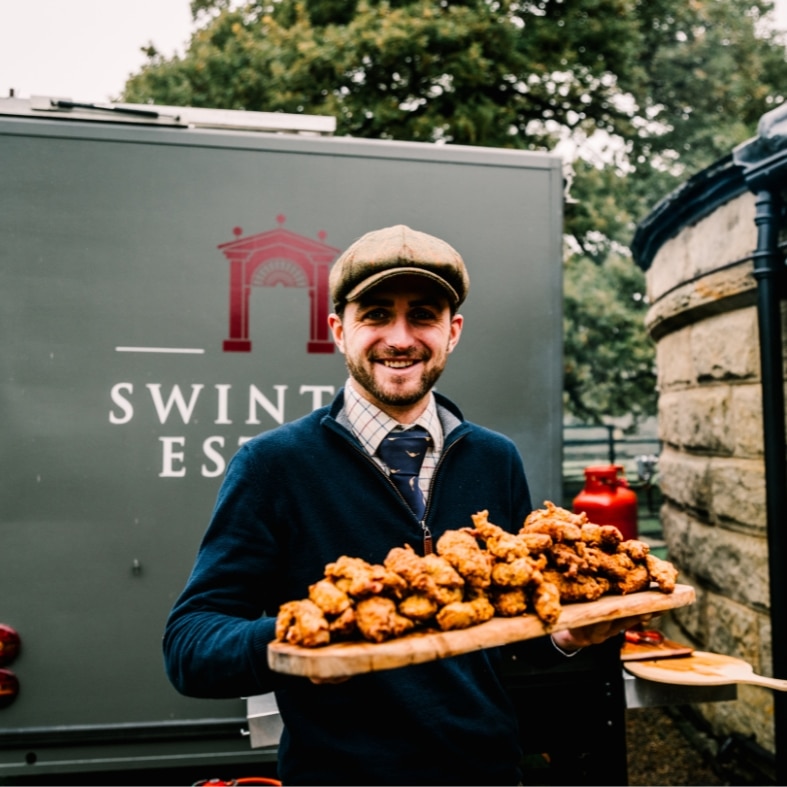

Duncan Thomas, BASC North director, tells us about a young man who has come a long way in the ten years since he joined the BASC Young Shots programme.
“One of my passions and indeed a key objective of my role is helping young people get the very most out of shooting sports. I first met Jack Depledge and his father Richard soon after starting with BASC North.
“Jack joined the Young Shots project about ten years ago when he was barely 12 years old. Already a competent shot, he and his father Richard attended most events as volunteers, soon becoming part of the extended North team.
“Jack stood out from the start. He was always reliable and had a real gift for spotting event opportunities in terms of shooting, conservation and social gatherings. He soon became part of a scheme we called the Young Shots Ambassadors (YSA). The YSAs were like the SAS of Young Shots, many of them initiating new events, entering teams into competitions, undertaking great amounts of conservation work putting up bird boxes and duck nest tubes and much more. At that point we had about 20 YSAs and well over 100 Young Shots.
“Jack would be about 14 or 15 years old when the general licence for avian species crisis landed, and he rapidly emerged as a very credible media presence with his lovely northern accent, just like mine. Both for Channel 4 and Sky TV he was a resonant voice on the socio-economic impact of the issues surrounding the general licence. He was eloquent and persuasive in explaining that not only were general licences vital for pest control, but that such activities provided a sense of wellbeing for those who undertake them. As a result of these first class interviews on TV, we used him more and more to explain the benefits of shooting.”
A keen grouse beater and exceptional student at Newton Rigg College near Penrith, Jack secured a grouse keeper’s job up in the Highlands when he left college. After that he moved to the Swinton Estate in North Yorkshire as the assistant estate manager, a fair achievement for somebody still so young.
Duncan continues: “There are countless young people who’ve been through the Young Shots programme and it’s immensely rewarding to see how they’ve now turned out. For instance, Lucy Marsden is now a forestry manager in the Lake District and Max Hickling is a grouse keeper.
“Jack is a superb asset now embedded in the shooting community, and a classic example of the value of investing in youngsters and letting them develop. It was good to catch up with him recently about his remarkable progress in country sports.”
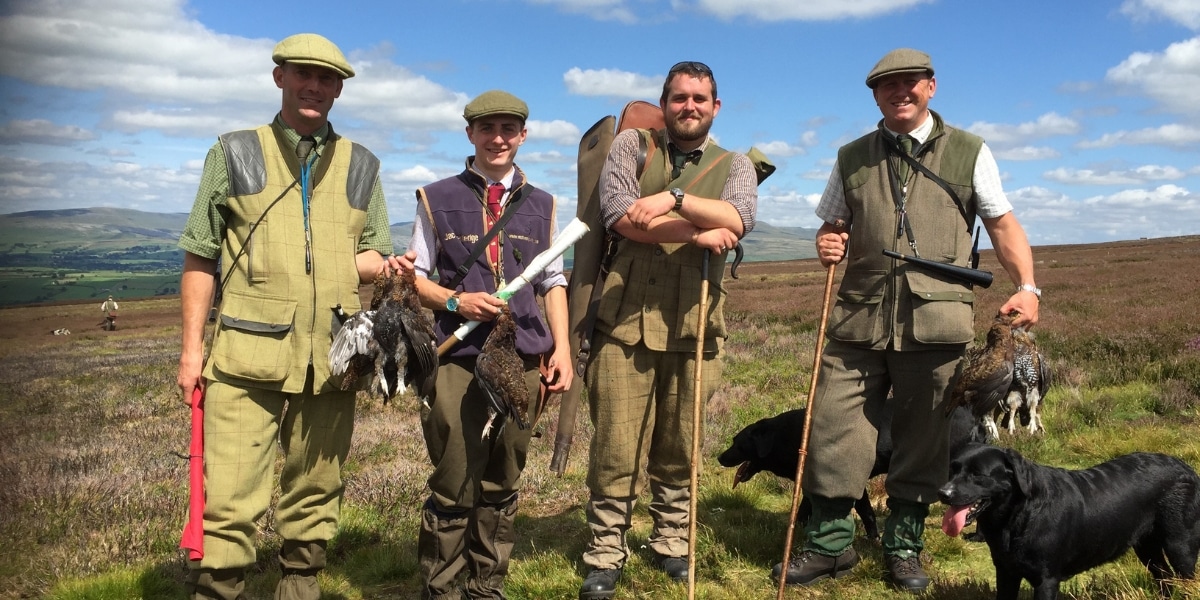
Curtis Mossop, who is head of education and outreach at BASC said of Jack: “I first met Jack back in 2016, when I was the senior lecturer of the game and wildlife team at Newton Rigg College as well as his tutor. He arrived with somewhat of a ‘pedigree’ from his interaction with the BASC Young Shots programme and the accumulated experiences he had gained.
“From the outset he was an academic student, but had the practical ability to back it up. His maturity meant he excelled in many aspects while studying, not least as a role model for his peers and an ambassador for the college itself.
“As his studies concluded, Jack gained the prestigious accolade of receiving the Frank Jenkins trophy for best gamekeeping student, following this up with his first gamekeeping job in Scotland. Recently, I had the privilege of working alongside Jack once more in delivering BASC’s first Women in Shooting simulated Macnab event at the estate he now works on. I have no doubt he will continue on his upward trajectory within our sector.”
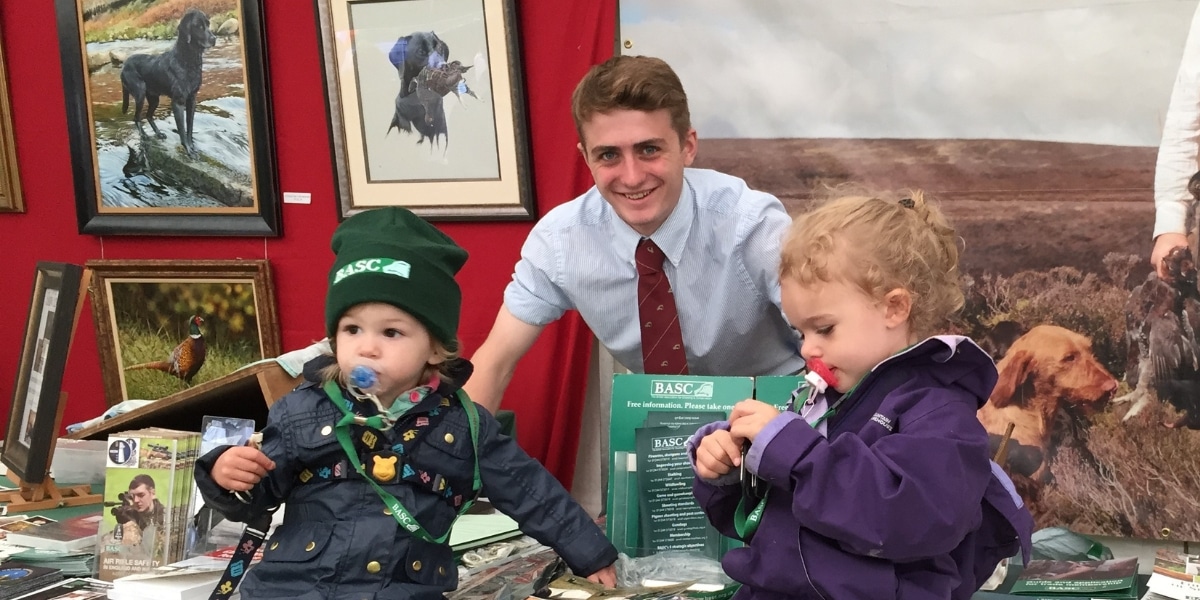
Jack, can you tell us where your love of country sports came from?
My dad Richard originally. He was on a walk one/stand one syndicate and I was recruited to the beating line and working his dogs from about five years old. I was fascinated by the way it all worked with the pens, releasing and feeding etc. As well as that, processing the game and the food element was always a great interest.
Tell us about your journey through BASC Young Shots and Young Shots Ambassadors?
I was about 12 when I attended my first BASC day and I used to go on anything I could, from clays to game to dogs for deer. The YSA project was starting to emerge and I attended the Newton Rigg Gamekeepers activity weekend. That’s where I was asked if I was willing to take on more responsibility and contribute to both the conception of events and the planning. For example, I attended the Lowther Show and would stay all weekend. It was a real eye-opener. And I do things like take my ferrets to Myerscough open day and give talks on their use.
We went to a really smart day at Royal Berkshire Shooting School and our kids’ team came sixth out of more than 100 adult teams. We got a standing ovation at the prize ceremony and George Digweed presented the prizes. It was amazing to meet him.
Then I gave a short presentation at a fundraising dinner at the Inn at Whitewell in Lancashire. The next thing I knew, the BASC media team asked if I would give some comments live on TV about the social benefits of shooting, within the context of the general licence furore. I was nervous at first, but I think they gave me an easy ride; a youngster with a Yorkshire accent on Channel 4. I was then asked to do the same on Sky News and we did the interview while culling pigeons and protecting crops at Mossborough. The film crew really ‘got it’, having seen and heard the facts first hand.
Who were your mentors?
I owe a massive thanks to my dad. Like most kids born to shooting parents, it was almost certain I would get involved. I did gamekeeping work experience with Richard Wolfenden on the grouse moor at Fourstones, which was amazing, I learnt so much about the uplands. Malcolm Riding was my first tutor at Newton Rigg and I think the gamekeeping community owes a tremendous amount to him, as a high proportion of upland gamekeepers will have had some, if not most, of their formal training via Malcolm. Curtis Mossop then took over at Newton Rigg for my final year and even with some big boots to fill, he was a brilliant mentor into full-time employment.
And of course the BASC North team was great at creating introductions and opportunities for so many of us youngsters. For instance, I spent a few months on work placement in South Africa. In the YSA we weren’t treated as kids, just part of a bigger team and the networking chances were endless.
One of the highlights of my career was working on turning an old dairy farm into a high-quality driven pheasant shoot on the North Island of New Zealand. This came through a man called Guy Ralph who is sadly no longer with us. He gave me a great introduction to estate management and the opportunities available. He was instrumental in guiding me down this path and I will always be very grateful to him for that.
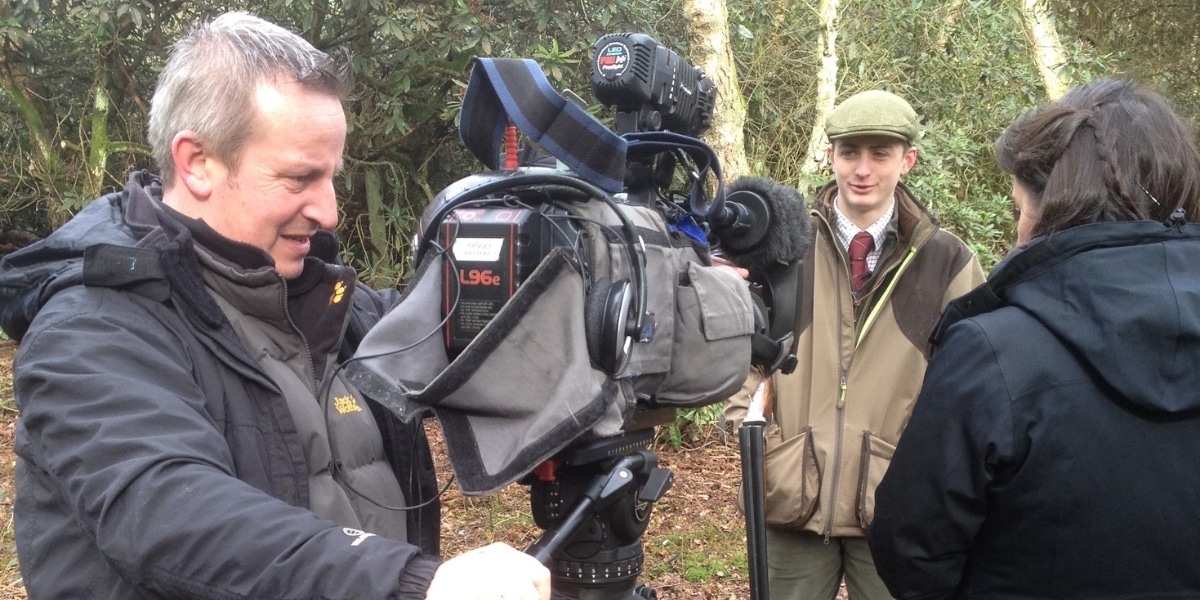
You are obviously comfortable in the media – is that because you are so passionate about the topic?
I didn’t have much choice early on. The team had every confidence in me and, to be fair, were there to step in if needed. I think the public appreciated some fact-based proper Yorkshire straight talking. But yes, I am passionate about pushing the sustainability of the whole shooting journey, especially the game cooking.
What were the highlights of your time at Newton Rigg?
We were encouraged to run the college shoot days, and they were completely run by the students. We would take it in turns to be the shoot captain, and being in command was a real bottle tester, but we learnt so much, especially about communication on the shoot day.
Tell us about your role at Swinton Park?
I’m the assistant rural estate manager and the job involves helping to manage the estate’s residential and agricultural portfolios, alongside management of an inhouse sporting and forestry department. The current role is a much broader approach to land management with the almost endless uses. The estate champions the whole field to fork journey and we call it ‘estate to plate’. It’s very important to us that the food miles are near zero.
What would you say to any young people looking for a career in country sports?
The country sports community still provides many opportunities and networking is very important. I met so many decision makers from the start, and learning how to move in that circle has been a crucial life skill to develop. But ultimately there is no substitute for getting stuck in and showing you can do the work.
And finally if you could choose one country activity tomorrow what would it be?
I love working my dogs, especially picking up on the shoots. Dog work was my first experience from childhood – a day out without the dogs just isn’t quite a proper day.
For more information about BASC Young Shots events, visit our event pages to find a day near you.
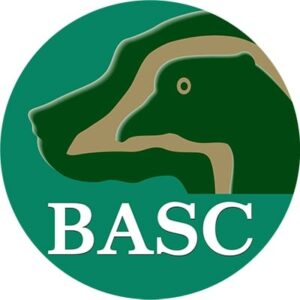

BASC Scotland director Peter Clark recently joined Tayside and Grampian Moorland Group coordinator Deirdre Falconer to showcase game to local school pupils.
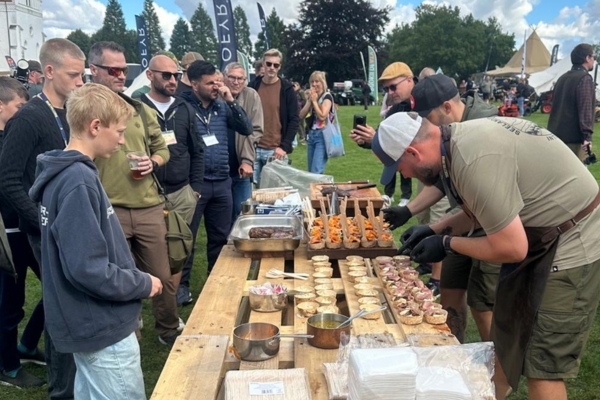
BASC’s head of education and outreach Curtis Mossop reflects on an international youth conference in Denmark.
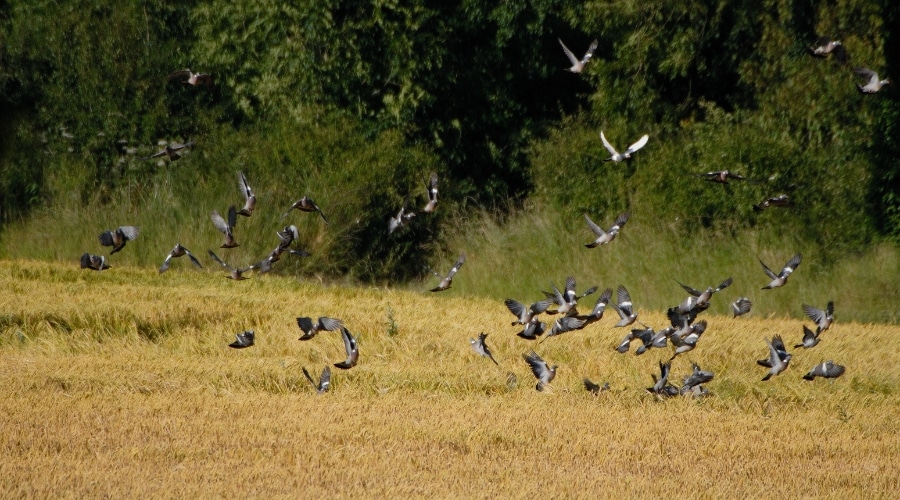
BASC has assisted with the return of shotguns to a group of pigeon shooters following their inappropriate seizure by Greater Manchester Police.